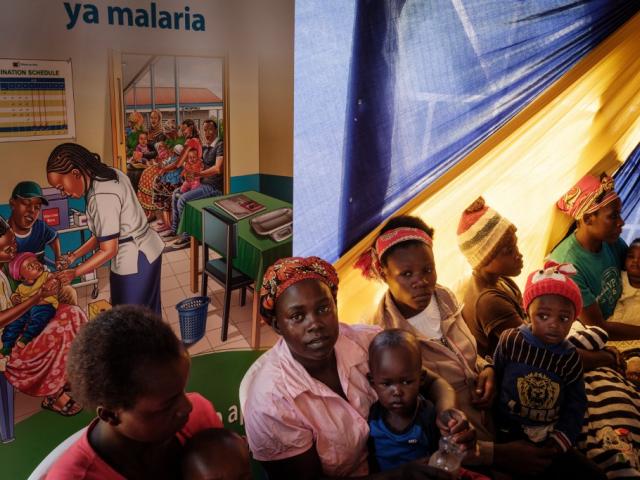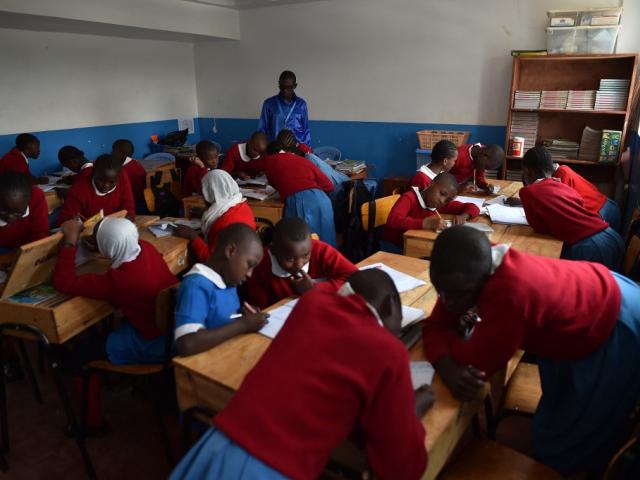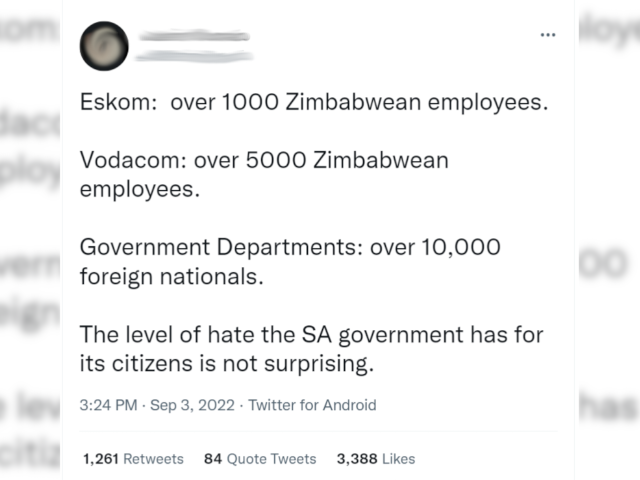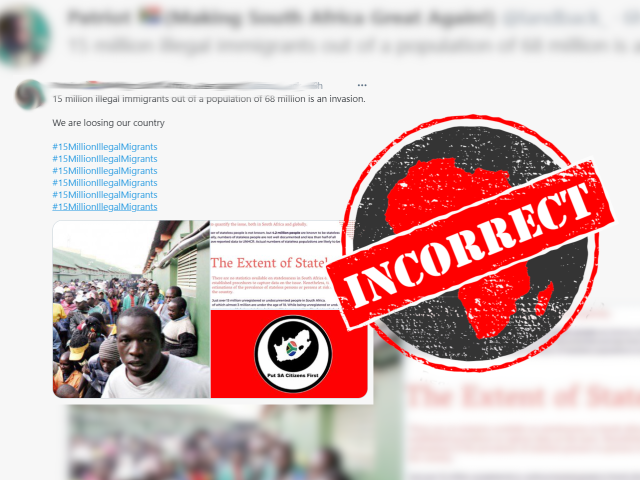-
Experts say there is no evidence that undocumented immigrants contribute disproportionately to South Africa’s crime levels.
-
There is also no evidence to show that immigrants “drain” South African taxes without contributing in turn. While tracing the taxing of undocumented immigrants is naturally difficult, all people in South Africa pay value-added tax on goods and services, which makes up more than a quarter of all taxes collected.
-
There is compelling long-term data to show that immigrants in fact create employment for locals and help grow the economy.
Many immigrants in South Africa are anxious. The Zimbabwean Exemption Permit (ZEP), which allows Zimbabweans to live and work in the country under specific circumstances, expires at the end of June 2023.
Around 178,000 people hold the ZEP. Without it, they become undocumented. The South African government has decided not to renew the permit, a decision that civil society organisations are challenging in court. The Zimbabwean Immigration Federation is also seeking an interdict to stop Zimbabweans being deported, should the permits expire.
Amid this debate, a video shared online shows a police roadblock in Johannesburg – South Africa’s largest city, often the epicentre of xenophobic attacks. The roadblock was set up to arrest undocumented immigrants, and more than 50 people were reportedly held.
Unsubstantiated yet widespread narratives blame immigrants for some of South Africa’s biggest social issues, such as crime and unemployment.
Social media posts in early 2023 have given us a glimpse into some of these attitudes.
In February 2023, South African human rights lawyer, Richard Spoor, tried to refocus the conversation. “Foreigners did not cause the failure of Eskom and other [state-owned enterprises]” and “are not responsible for the state of our roads, rail and harbour infrastructures” or “for the failure of our municipalities”, he tweeted.
In response, someone replied that “Illegal foreigners contribute massively to our crime statistics” and “are draining our tax base while contributing absolutely nothing”.
Similar sentiments have been expressed widely on Twitter and Facebook, including here, here, here, here and here.
But somewhere beyond the rhetoric, outrage and finger pointing lie the facts. We looked at what the numbers say about these well-worn arguments.
Understanding migration in South Africa
Before we can interpret the evidence, it’s important to understand the terms being used in this debate.
While there is no universally accepted definition of “migrant”, someone who moves from the country in which they live to another is an “immigrant” to the new country.
In terms of documentation in South Africa, someone can become a “temporary resident” by obtaining specific visas to be in the country for a certain period of time.
Applications to become a “permanent resident” are accepted in specific situations, such as living in South Africa on a work permit for more than five years.
Someone who does not have permission to be in the country is considered “undocumented”. National spokesperson for the South African Police Service (Saps), Athlenda Mathe, told us that “the Immigration Act requires every person who is approached by a police officer … to identify themselves as either a citizen, or a temporary or permanent resident”.
“Undocumented persons and those who do not have a visa or who have allowed their visa to expire are considered illegal foreigners,” she said.
But Lizette Lancaster, a migration expert from the Institute for Security Studies in Pretoria, told us that calling immigrants “illegal” is inaccurate because “persons cannot be illegal”. Instead, a person’s immigration status might be “irregular”, for a number of reasons.
According to the United Nations High Commissioner for Refugees, the term “illegal” is not only inaccurate, but could further marginalise a group that already faces discrimination.
Lancaster told Africa Check that people who move to South Africa are often initially documented, but become undocumented because of changes in the law, or because they are refused asylum. Many undocumented people “have lived in South Africa for generations but do not have documents proving their citizenship”. For example, many people whose parents are undocumented cannot become documented, even though they were born in South Africa.
Although it is difficult to estimate the exact size of the immigrant population, Statistics South Africa put the number of immigrants in 2021 at around 3.95 million, or about 6.6% of the country's total population.
Politicians on all sides have been accused of scapegoating immigrants to distract from governance failures and corruption. But the idea that crime in South Africa is largely committed by undocumented immigrants also seems to have become entrenched in the country’s collective belief system.
Take the nationally representative South African Social Attitudes Survey (Sanas), which looks at the beliefs of people in all nine provinces of the country. When asked to rate the statement “immigrants increase crime rates”, 62% of respondents agreed or strongly agreed in 2008. This figure rose to 66% in 2016.
According to the Human Sciences Research Council, which conducts the annual survey, a preliminary analysis of the 2021 Sanas showed that most respondents saw foreign nationals as a threat.
But is there any data to show that undocumented immigrants “contribute massively” to crime in the country?
No evidence undocumented immigrants contribute disproportionately to our crime levels, says expert
The first place to look for data would be within the police and criminal justice system. According to the Pretoria-based Institute for Security Studies (ISS), Saps collects demographic data, such as nationality, when making arrests. But, said the ISS, these figures were not publicly available and “appear to be a closely guarded secret”.
Africa Check asked Saps for clarification, but did not receive a response. (We will update this report if we do.)
In addition, the correctional system collects data on whether inmates in prisons are South African or not. In parliament in early 2022, Ronald Lamola, minister of justice and correctional services, released data on the number of “illegal foreign nationals” and the total number of people convicted of crimes in South Africa each year between 2017 and 2021.
The immigration status of those arrested was determined by department of home affairs officials, Saps told Africa Check.
The data showed that over the five-year period, undocumented immigrants on average made up just over 2% of all people convicted of crimes in South Africa. In its 2022 report, which focused on immigration myths, the ISS provided more detail.
Lancaster echoed the report’s findings. “There is no evidence that undocumented migrants contribute disproportionately to our crime levels,” she told us.
Loren Landau, an expert on migration in the global south based at the University of the Witwatersrand in Johannesburg, told Africa Check: “Crime statistics over many years demonstrate that immigrants make a disproportionately low contribution to crime in the country.”
The South African Revenue Service (Sars) is responsible for taxation in the country. Its website explains the types of taxes people are required to pay.
The two main forms of tax payable by individuals in South Africa are personal income tax and value-added tax (VAT). Most people living in South Africa do not earn enough to pay income tax. This also applies to immigrants, Landau told Africa Check.
Sars also requires valid identification in order to register to pay direct taxes, such as income tax. Siphithi Sibeko, a spokesperson for Sars, told Africa Check that “by nature of definition, it would be difficult and outside the bounds of the law to account for the illegal immigrants”.
Like everyone else, undocumented immigrants pay tax in the form of VAT
VAT is an indirect form of tax that is paid by everyone who buys goods and services in South Africa. While some basic foods, goods and services are exempt from VAT, the price of something sold in South Africa will generally include 15% VAT.
This means that immigrants, whether documented or not, do pay VAT on goods and services “in the same way as everyone else”, Landau told us.
Lancaster agreed: “All residents of South Africa, irrespective of status, pay value-added tax through the routine purchase of goods and services”.
VAT accounts for a significant proportion of tax revenue collected. Sars reported that it collected about R1.25 billion in tax revenue in the 2020/21 financial year. VAT accounted for 26.5% of the total revenue, similar to previous years, while personal income tax was 39.1%, company income tax 16.4%, and the rest was other taxes.
Immigrants also contribute positively to the economy in other ways. According to the World Bank, data collected between 1996 and 2011 suggested that for every immigrant working in South Africa, about two jobs are created for South Africans.
The study found that rather than competing for the same jobs, the tasks done by immigrants and local South Africans tended to “complement” one another, which could “increase the productivity of local workers, generating positive results for their employment and wages”.
A 2018 report by the Organisation for Economic Co-operation and Development (OECD) also found that immigrants made a positive contribution to the economy. Looking at the sectors in which South African and immigrant workers were employed and the average productivity of workers in these sectors, the report calculated that immigrants contributed around 9% of South Africa’s gross domestic product (GDP).
Updated data is needed, though, as this research is not recent. The 2018 OECD report relied heavily on the 2011 national census, and the World Bank study only used data up to that year. The results of the 2022 census are expected in 2023. We will update this report when they are released.








Add new comment